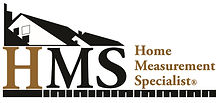8 Steps To Help Minimize Appraisal Errors
For appraiser's, and no doubt many other professionals, 2017 proved to be a great year for business. I think I speak for most appraisers when I say that at times our work loads were heavier than we could have anticipated. A crazy work load has its advantages and disadvantages. When we are busy, we are more profitable and that is great.
One of the drawbacks of being very busy is the potential for errors in our reports. As much as we hate to admit it, the question is probably not "if" but "when", with regards to making a mistake on a report. As professional appraisers we pride ourselves on the accuracy of our reports. And rightly so! After all, USPAP Standards Rule 1-1(b) warns that appraisers should “Not commit a substantial error of omission or commission that significantly affects an appraisal.” Rule 1-1(c) states that an appraiser should “Not render appraisal services in a careless or negligent manner, such as by making a series of errors that, although individually might not significantly affect the results of an appraisal, in the aggregate affects the credibility of those results."
A couple of key words to consider are "careless" and "negligent". USPAP also makes the comment that "Perfection is impossible to attain, and competence does not require perfection. These Standards Rules require an appraiser to use due diligence and due care." Of course, even when we use due diligence and due care, mistakes can still happen because we are not perfect people. As the USPAP comments make clear, a mistake is not necessarily an indication that we are incompetent. It may simply be a mistake.
So how can we avoid making mistakes? Here are some things that help me to minimize mistakes. (Or at least I think they do.)
1. Proof read your report in a different format before sending it out. After scanning through my report several times with my eyes, I convert the report to .pdf format and then re-read it. For me, the change in font helps my eye to catch errors that I might not have otherwise seen.
2. Run a spell check on the entire report. Most appraisal software offer a tool that can do this. It only takes a minute.
3. Most lenders require our reports to conform with UAD standards. So before sending your report out, run a UAD error checker, which most appraisal software have.
4. Run a comp consistency checker to make sure that the data on the comparable sales you utilized is consistent with those same sales you may have used in previous reports. Most appraisal software also offer tools that can accomplish this.
5. Before sending your report out, step away from the report for a short time. This is not always possible due to time constraints. But I find it helpful to take a break from the work and come back to it a little later. For me, this is especially helpful when working on complex assignments. This helps me to clear my head and have a fresh set of eyes on my work.
6. Try to complete reports in an environment that has few distractions. Sometimes this is not possible. But the fewer the distractions, the less mistakes we are likely to make.
7. If possible, have a respected peer review your report. Even if you cannot do this on every report, if you do this from time to time, it can help.
8. Perform appraisal reviews on occasion. Performing reviews is not my favorite type of appraisal work. However, when we are analyzing someone else's work, it can help us to see how others view our work and can make us aware of potential errors we might make when we are completing our own reports.

So why is it so hard to catch our own mistakes? In Terry Nelson's Quill article, Writing in The E-World, it is called "inattentional blindness". It explains that "The brain...is processing outside of conscious awareness to prevent overload like a computer crash, it will only process so much information. It filters out what we expect to see. I expected to see a quotation mark, so my brain filled the gap. I thought it was there, but it wasn't".
Now think about how much data we must analyze as appraisers. Clearly, we need some systems in place, besides just our own eyes, to check our work.
So what happens if we make a mistake and our client points it out to us? Don't make excuses. There is a difference between making an excuse and explaining what happened. Explaining what led to the error might be useful in helping our client see that we were not being careless. Just humbly admit that we made the mistake, if indeed we did, and do everything in our power to correct our mistake.
The more difficult question is what to do if we discover that we have made a serious mistake in a prior appraisal that does have an affect on the original opinion of value. Perhaps our client is not aware of our error. Some may just not say anything and hope that the mistake never comes to light. That is an option, however, I would not recommend that course. You've heard the expression, "Two wrongs to make a right". In my opinion, that applies to this kind of situation. If we discover that we made a major mistake that has affected the original opinion of value, the best thing to do, in my opinion, is to let our client know. That's a scary thing because we rely on our being licensed or certified for our livelihood. It is terrifying to think of being put on a do-not-use list, or worse, getting in trouble with our state board because we made a mistake.
While there's no guarantee that this will not happen, I do believe that most of our clients would rather we be honest and forthright and just admit what we did and then take the necessary steps to simply correct our error. Lenders and state boards fully realize that mistakes happen. We really should not have to worry unless our mistake was due to carelessness and/or neglect. I believe that most if not all state boards are usually reasonable and merciful to those who make an honest mistake that was not due to carelessness. When we make mistakes, whether large or small, we may feel like we are the only appraiser in the world who has made a mistake. This is simply not the case. We all make mistakes from time to time. So don't loose heart! Just keep trying to improve and take the steps necessary to not make the same mistake again.
A word of warning. Please don't take the information in this article as legal advise. If you find that you have made a serious error, it is advisable to call your E & O company to get advise on how to handle the situation. The main thing to remember is to be honest in all that we do. If we are, in the long run it will work out to our benefit and to the benefit of our clients.
This is a bit of a heavy topic to start off 2018. I thought this would be a good time to start off the new year on a good footing and make it our goal to minimize our mistakes so that we can enjoy the rewards that come from being busy and minimize headaches along the way for us and our clients. May everyone have a great and prosperous 2018!






















